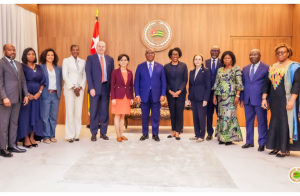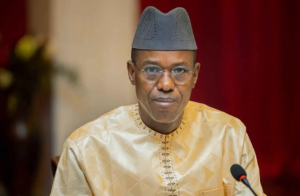AES Confederation: Faced with multifaceted challenges, leaders make a decisive projection

It has been a year since the Sahel countries, particularly Burkina Faso, Mali, and Niger, began working in synergy within the framework of the Alliance of Sahel States (AES) to tackle the common challenges facing their nations and shared region. Following the satisfactory and encouraging outcomes of this sub-regional cooperation, the allied heads of state are looking toward the future with ambitious decisions and projects that could help achieve critical objectives.
As a reminder, the heads of state of the AES, now the AES Confederation, have decided to expand their joint actions beyond defense and security. This includes areas such as the economy and diplomacy. To further strengthen their cooperation and better address challenges in these key areas of the Alliance, significant joint decisions have been made.
Notably, they have agreed to establish an Investment Bank and a Stabilization Fund. According to the leaders of this organization, the idea is to mobilize and pool financial resources to fund joint development projects across various economic sectors for the benefit of the populations within the Liptako-Gourma region.
In promoting the integration of their peoples, it has been announced that a common biometric passport for the people of the AES Confederation will soon be introduced. This initiative aims to accelerate the integration process, facilitate the free movement of people and goods within the region, and reduce or eliminate customs barriers at shared borders.
The ambition of the AES member countries’ authorities is to make this Sahelian region stable, prosperous, and fully sovereign for the benefit of their citizens. There are also plans for a synergy of actions to ensure food security and improve infrastructure in the region, according to the speech by the current president of the Confederation, Malian head of state, Colonel Assimi GOÏTA.











